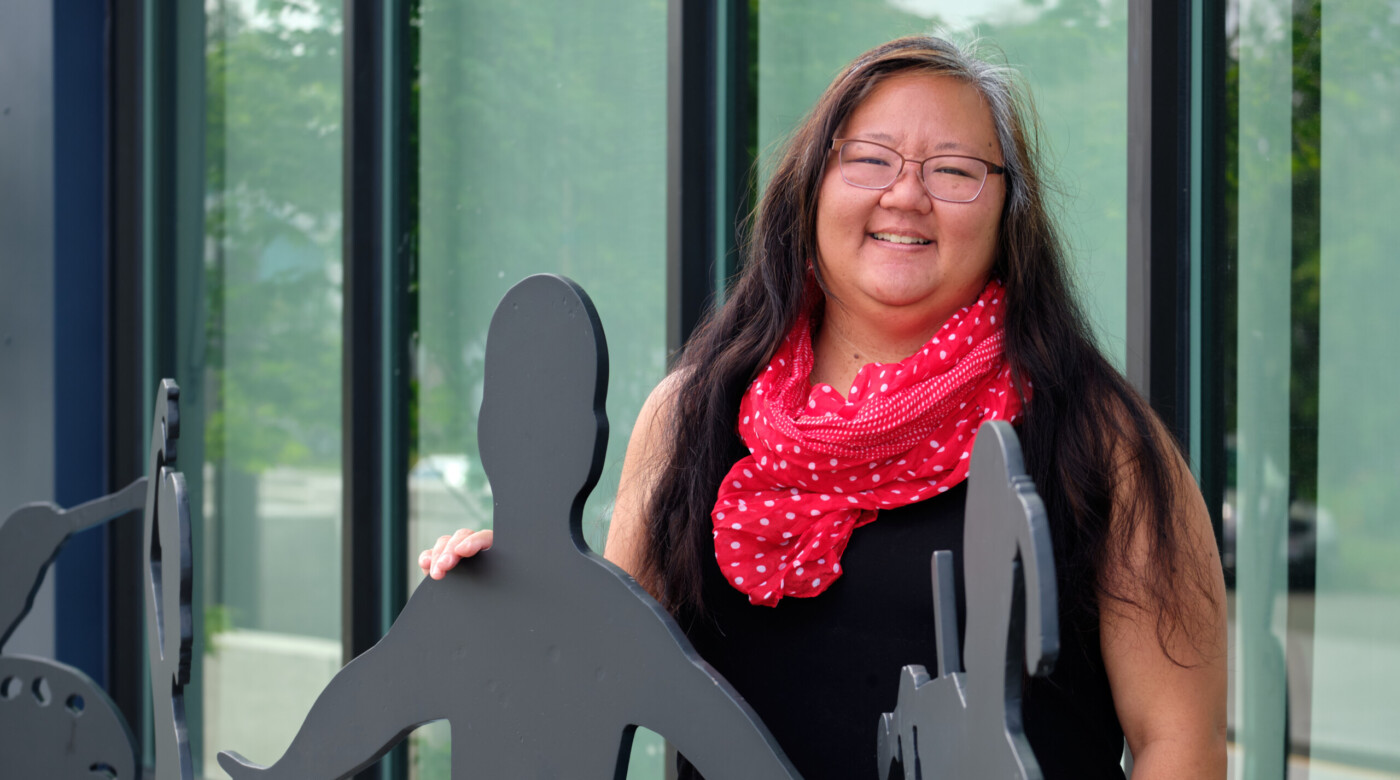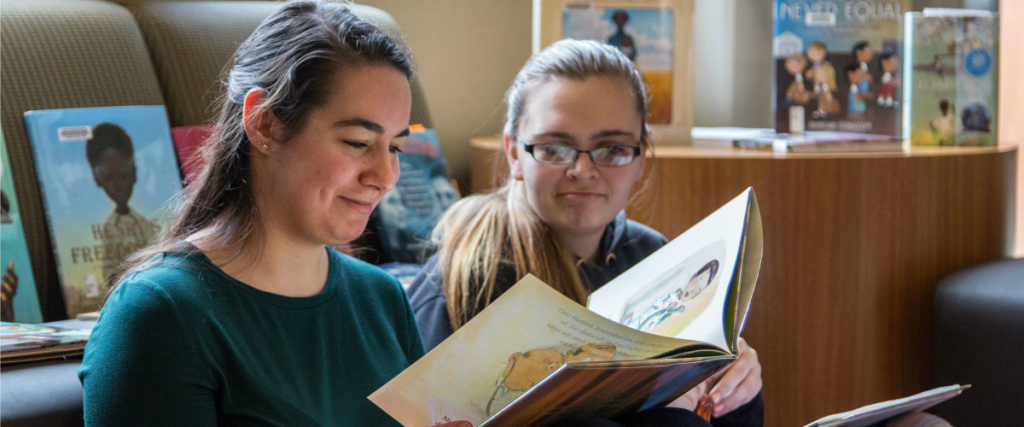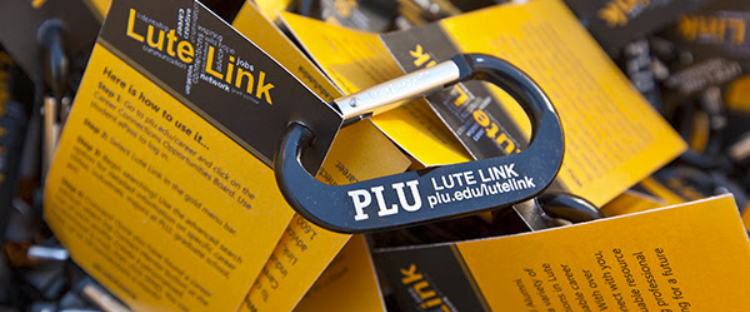Special education teacher Erin Azama ’01, MAE ’06 discusses her distance learning transition

Image: Special Ed Teacher Erin Azama poses by an art themed sculpture (Photo/John Froschauer)
By Lora Shinn
Marketing & Communications Guest Writer
Erin Azama ’01, MAE '06 is a special education teacher at Grant Center for the Expressive Arts, an arts-focused elementary school in Tacoma’s North End. She works with children from kindergarten to fifth-grade, so her work-from-home transition was not only a break from her routine but to the routine of all of her students.
When it’s not COVID-19 season, what’s your job like?
I’m a special-education teacher working with kindergarten kids all the way through fifth grade in a learning resource center. Most students will get pulled out of class throughout the day, depending on what services they receive. For my younger students, I go into the general-ed classroom to assist and support them. I have 21 students on my caseload. But I also have other kids I’m still checking in on.
How did the transition go to remote teaching and learning?
There’s a lot to figure out, but the nature of teaching is that we land on our feet. We’re used to doing what we can in the best interest of our kids while ensuring they’re safe and focusing on their mental health.
We’re still trying to figure out how are we’re going deliver instruction and services. Access to technology or supplies is hard for some families, even having pencils and paper. Others are trying to access food and rent.
This situation is challenging for sure, but it’s still rewarding because we’re figuring out how to communicate and connect with our students in different ways.
What do you miss most about not being in a physical classroom?
I miss my kids. That’s been the hardest, I think. In the second or third week or so, I was at the post office, sending some face masks to my out-of-state parents who are required to wear masks. I heard somebody behind me at the six-foot mark line, and I turned around.
One of my students was there with his mom, dropping off something at the post office. And he literally went to reach for me, to try and give me a hug. And I was like, “Aw.” And he kind of stopped himself. I was just like, “I know, buddy, I miss you guys too.”
What are some challenges of remote teaching and learning?
Some parents have one-on-one availability for their kids and are managing it well. Or have older kids who can do online lessons. Then, I have a family with seven kids and one tablet. They’re doing their best, we check in often, and we try not to overload them. It’s about finding that balance and connection.
We remind families, “Hey if math from a textbook isn’t working today, ask the kids to help you cook dinner, or bake banana bread. There’s your lesson for the day. Just don’t give up on it.”
Obviously, this isn’t the type of teaching that we’d signed up for. But we’ve come together as staff in support of one another and our students and received great support from our union. We’re trying to figure out how to help one another.
Do you have any advice or encouragement that you might share with students graduating who hoped to begin careers in early ed?
It’s always a good time to be in education. You never know what’s going to happen.
For the ones just starting out, this is a good environment.
Even when we’re in the buildings, there’s no such thing as a ‘normal day’ because everything is new. It’s not like going in and punching a time clock, and doing the same thing daily. There’s always going to be a curveball—whether that’s budget cuts, new kids coming in, new technology, new curriculum. That’s the world of education. So we learn to land on our feet and run with it.
For students graduating now, focus on the fact that we got in it for the kids, and we want to do what’s best for the kids. Just being there and helping as much as we can. And then doing that for each other as teachers, too.




